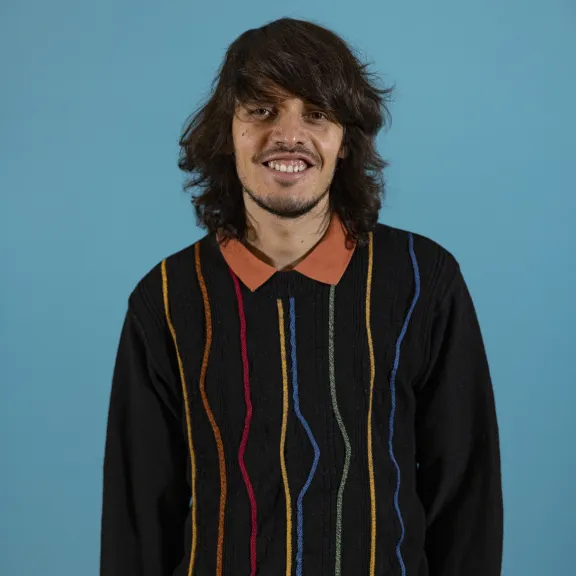Matthieu Koroma Assessing the ability to feel in unconscious individuals
Matthieu Koroma, neuroscience researcher in Athena Demertzi's laboratory at Liege University (Belgium)
- 2021 • Bettencourt Prize for Young Researchers

The 2021 Bettencourt Prize for Young Researchers was awarded to Matthieu Koroma, a neuroscience researcher, for his work on brain activity and information processing during sleep or unconsciousness.
The mysteries of unconsciousness
What happens in our brain and body when we are unconscious? Can we feel and "be there" without speaking, moving or generating electrical waves in our brain? To answer these questions, Matthieu Koroma wants to study the interactions between the brain and the body.
In Athena Demertzi's laboratory at Liege University’s Institute for Interdisciplinary Research in Biomedical Sciences, Dr. Koroma will study the reactions of healthy people’s bodies under deep anesthesia while producing sensations of body imbalance. A feeling of imbalance in the body can be induced by putting hot water in the inner ear, which regulates balance. This normally causes dizziness and rapid eye movements as the brain tries to correct the imbalance. Brain activity, the skin’s electrical activity, heart rate and eye movements in response to this protocol will be recorded and analyzed to assess communication between the brain and body that regulates the body states of seemingly unconscious individuals.
Sentience, or the ability to feel
The data gathered by Dr. Koroma may shed light on the relationship between the body's reactions and brain activity and provide information on sentience, the ability to feel, in states of apparent unconsciousness, during which it is impossible to communicate and which we cannot remember.
The in-depth study of the relationship between the body and the brain in states of unconsciousness is essential to guide medical decisions, manage pain and contribute to the debate on the end of life.
Matthieu Koroma in a few words
Matthieu Koroma earned two bachelor’s degrees, one in biology, the other in philosophy, before doing a master's degree and a PhD in cognitive sciences under the supervision of Sid Kouider at the Cognitive Sciences and Psycholinguistics laboratory at the École Normale Supérieure.
During his doctoral work, he developed several projects on information processing during a reversible state of unconsciousness that we all know very well, sleep. He used electroencephalograms to study information processing during sleep and how it depends on brain activity.
Dr. Koroma is a member of the ALIUS community, which fosters interdisciplinary dialogue among researchers studying consciousness.
Bettencourt Prize for Young Researchers
Created in 1990, the Bettencourt Prize for Young Researchers is one of the first initiatives of the Fondation Bettencourt Schueller. Until 2021, this prize was awarded each year to 14 young doctors of science or doctors of medicine, to enable them to carry out their post-doctoral stay in the best foreign laboratories. 349 young researchers were distinguished. The prize endowment was €25,000.
All the award-winners